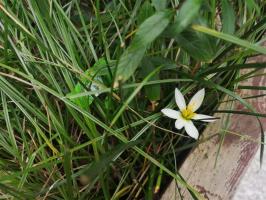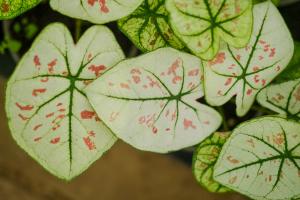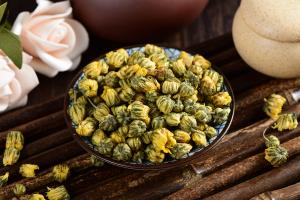Introduction
The elephant ear plant is a popular houseplant known for its large, exotic, and heart-shaped leaves. While this plant possesses several beneficial qualities, many people wonder if it is poisonous. In this article, we will examine whether the elephant ear plant is toxic to humans and pets.
What is the Elephant Ear Plant?
The elephant ear plant is scientifically known as Colocasia or Alocasia. They belong to the family Araceae and are native to tropical and sub-tropical regions of Asia and East Africa. The plant is characterized by its large leaves that grow up to 3 feet in length and 2 feet in width. The elephant ear plant has many uses, including medicinal, culinary, and ornamental purposes.
Is the Elephant Ear Plant Poisonous?
Yes, the elephant ear plant is poisonous. Every part of the plant contains calcium oxalate crystals, which can cause rashes, irritation, and swelling of the mouth, tongue, and throat. When ingested, the crystals can cause burning, tingling, and numbness of the lips, face, and tongue. In severe cases, ingestion can cause difficulty breathing and even death.
How to Handle the Elephant Ear Plant Safely?
If you are handling the elephant ear plant, it is essential to take some precautions. Wear gloves when handling the plant to avoid contact with the calcium oxalate crystals. If you need to prune the plant, use sharp, clean scissors or gardening tools instead of your hands. Be sure to wash your hands thoroughly after handling the plant, especially before touching your face or mouth.
Effects of Elephant Ear Plant Poisoning on Pets
Similar to humans, pets can also suffer from poisoning caused by the elephant ear plant. Dogs and cats that ingest the plant may experience swelling and irritation of the mouth, tongue, and throat. Some of the common symptoms of poisoning in pets include vomiting, diarrhea, difficulty breathing, weakness, and seizures. If you suspect your pet has ingested the elephant ear plant, seek veterinary care immediately.
Tips for Handling Elephant Ear Plants with Pets around
To prevent pets from being poisoned by the elephant ear plant, it's essential to take some precautions. Keep the plant out of reach of pets, or place it in an area where pets cannot access it. If you're growing the plant outside, fence it up so that your pets don't accidentally end up eating it. Be sure to supervise your pets when they're outside to ensure that they don't come into contact with any poisonous plants.
Conclusion
In conclusion, the elephant ear plant is poisonous and can cause severe health problems if ingested. When handling the plant, it is crucial to take necessary precautions to prevent skin irritation and poisoning. If you have pets, ensure that they do not have access to the plant to avoid pets' potential poisoning. Overall, the elephant ear plant is a beautiful and exotic houseplant that requires proper knowledge and handling for safe enjoyment.

 how many times do yo...
how many times do yo... how many planted tre...
how many planted tre... how many pine trees ...
how many pine trees ... how many pecan trees...
how many pecan trees... how many plants comp...
how many plants comp... how many plants can ...
how many plants can ... how many plants and ...
how many plants and ... how many pepper plan...
how many pepper plan...































